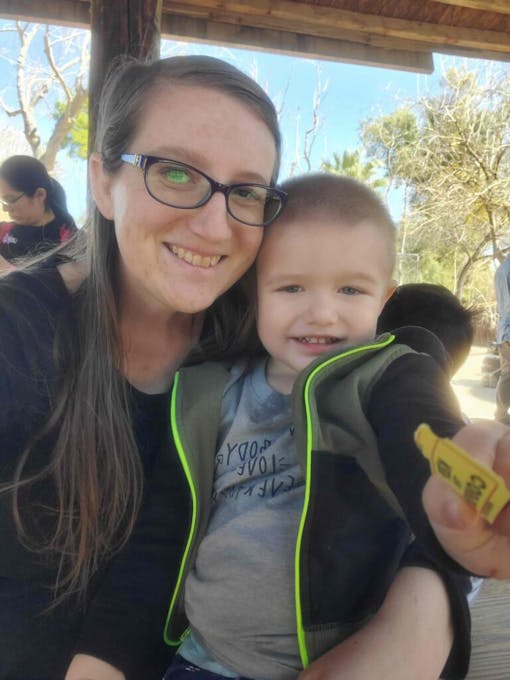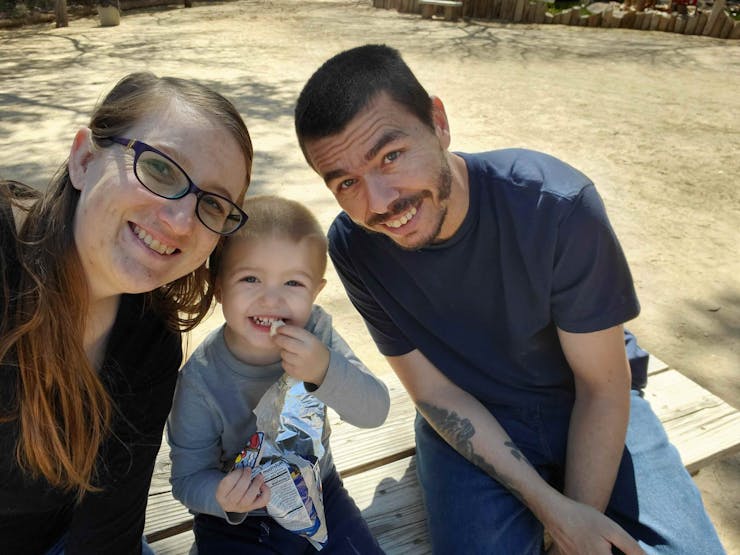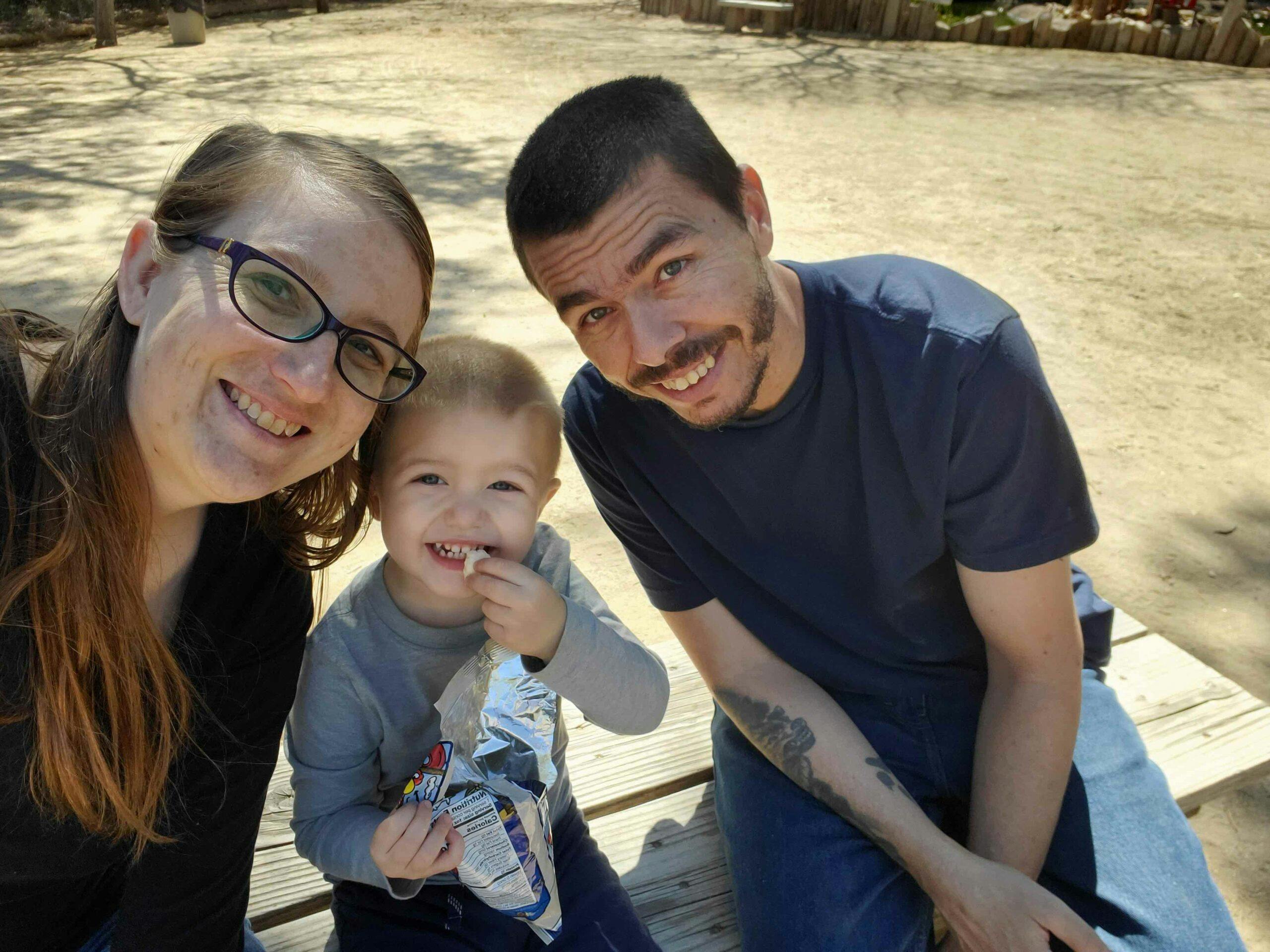Arizona’s highest court has issued a ruling that could remove some of the legal hazards that still exist for parents in states that have legalized marijuana.
In 2019, Lindsay Ridgell, a pregnant woman living in Phoenix, used medical cannabis to treat her hyperemesis gravidarum (HG), a life-threatening condition that causes extreme nausea and vomiting and can lead to miscarriage.
After healthcare workers detected cannabis markers in a blood test following the birth of her son Silas, Ridgell was reported to Arizona’s Department of Child Safety (DCS) and placed on Arizona’s child abuse registry. In the four years since, Ridgell has been in court fighting the DCS’ determination that her medical cannabis use constituted neglect of her unborn child.
Leafly’s 2022 report on the case, The parent trap: How old drug laws punish families in legal cannabis states, explored the implications for all parents and pregnant women.
On Jan. 5, 2023, the Arizona State Supreme Court threw out DCS’ final petition for an appeal of the Arizona Court of Appeals’ decision last year, which unanimously ruled that Ridgell’s cannabis use did not constitute child abuse or neglect. The decision ends the case in Lindsay Ridgell’s favor.
Along with resulting in the removal of Ridgell’s name from the registry, the decision sets a precedent in regards to the legal consequences pregnant and postpartum mothers could face for medical cannabis use. The ruling does not have legal weight beyond the state of Arizona, but its influence could be felt in policy decisions and legal arguments in all legal states.
Medical cannabis must be treated like any other medicine
The May 2022 Arizona Court of Appeals’ ruling in Ridgell v. DCS, which now stands as a result of the Arizona Supreme Court’s Jan. 5 decision, determined that Ridgell’s maternal cannabis use did not constitute child neglect because Ridgell was a qualifying medical cannabis patient taking cannabis under the guidance of a physician. Ridgell obtained her medical cannabis card in 2010, the same year Arizona legalized medical cannabis.

According the presiding Judge Randall Howe, who delivered the Court of Appeals’ three-judge panel’s unanimous decision, the Arizona Medical Marijuana Act (AMMA) clearly protects individuals with a state-issued card from penalties related to AMMA-compliant medical cannabis use. It remains undisputed that Ridgell possessed a lawful medical cannabis card and was using cannabis under the guidance of a physician.
Shop highly rated dispensaries near you
Showing you dispensaries nearJust as DCS cannot penalize mothers who use prescribed pharmaceuticals during their pregnancies, the Arizona Court of Appeals decided that DCS cannot penalize pregnant women with physician-issued medical cannabis cards who use medical cannabis to manage a qualifying condition or symptom like Ridgell.
In the weeks following that May 2022 decision, DCS appealed. On Jan. 5, in response to their petition for an appeal, the Arizona Supreme Court declined to hear any further challenges to the ruling.
Parents are still losing their children due to outdated laws
As Leafly reported last year, 23 states and the District of Columbia specifically classify prenatal exposure to controlled substances as child abuse or neglect, despite the presence of legal recreational and/or medical cannabis programs in these states. In some states, medical cannabis use, even without evidence of harm or risk to the child, is justification to remove custody.
Additionally, legislators in some states are fighting to pass punitive legislation against women medical cannabis users, like Alabama’s controversial SB 324 that would require women of child-bearing age to show proof of a negative pregnancy test before obtaining a medical marijuana card.
This outdated approach to parent medical cannabis use criminalizes pregnant women and tears families apart throughout the United States, which is why, as Ridgell’s attorney Julie Gunnigle told the Arizona Republic, the decision in Ridgell v. DCS is of national importance.
The Ridgell ruling will make it more difficult for DCS to charge pregnant women with abuse and neglect when using lawfully-obtained medical marijuana. This impacts every parent using medical cannabis by setting a “higher standard” for child welfare agencies to claim parental neglect, beyond evidence of cannabis use alone.
This decision could also lead to a wider reevaluation of child welfare policies when it comes to parental cannabis use. In 2022, both California and New York passed new child welfare laws that protect parents from child maltreatment charges for cannabis use, in absence of any reports of harm or risk to the child.
Closure for Lindsay Ridgell
Due to her placement on the child abuse registry, Ridgell, formerly a social worker for DCS, was fired from her job. She has had difficulty finding stable work due to the limited employment opportunities available to those on the state registry.
Ridgell did begin a new social work job six months ago, and with the ruling of this case in her favor, she is hopeful that she will be able to keep it. As for Silas, he is now a healthy and happy 3 year-old.






